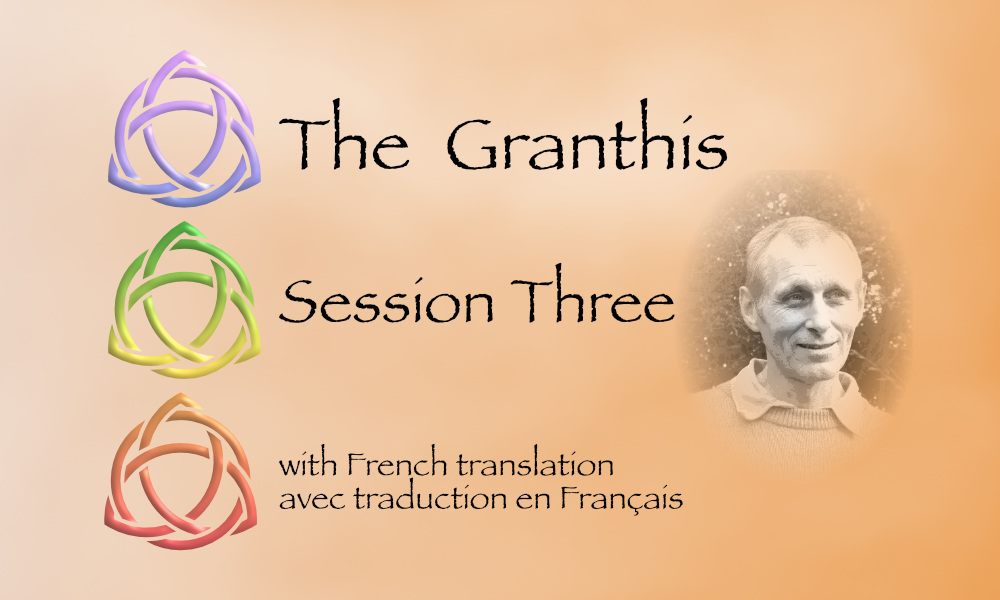Third in the series of talks and guided reflections, given by Swami Nishchalananda in 2002 in Paris, France, on the three Granthis, or ‘Knots’. They are a paradigm in classical Yoga; a way of understanding areas which are a natural part of human existence but also represent places where we may be blocked in the search for spiritual understanding.
The translation into French in the recording was by Yogini Ratna (Hélène Plaziat).
Vishnu Granthi
Continuing with Vishnu Granthi, and the two aspects of ‘Doing’, obsessive and creative. Swamiji takes time to discuss different ways these aspects might manifest in people.
He also makes the point that this is the Granthi of ‘Preservation’; the aspect of keeping things moving in the doing sense but also in the feeling and sentiment sense. For example, one may love another in a way which is selfless, undemanding, a simple expression from the heart with no strings attached. Conversely If our love for someone is because of some expectation, it reinforces our egocentricity. One is in a state of need rather than receptivity.
This, in itself, can actually be an evolutionary pressure (in the sense of spiritual evolution). If your expectation is denied then sooner or later that expectation becomes less in a similar situation, allowing a greater sense of freedom.
To summarise,
unconditional love liberates,
Conditional love binds
and restricts both
yourself and the other.
To summarise, unconditional love liberates, Conditional love binds and restricts both yourself and the other. With all the Granthis, acting in one way reinforces our conditioning, acting another way means a way opens to evolve spiritually, to ‘de-condition’ ourselves.
Being in the present moment during action can automatically give rise to creativity in action and can help to break conditioning. But obviously, much of our programming, our conditioning, is necessary to live as human beings, the need to eat, to drink, to sleep etc. and Swamiji talks of some examples of such conditioning, emphasising that there is no need to change such patterns of our individuality, when they are appropriate.
Mostly the patterns that may need changing are emotional conditioning and social behavioural conditioning, and in this subject, also mental conditioning.
How to change such patterns? In Yoga, we have the tools of Meditation, Reflection and Yoga Nidra.
Please enjoy the recording



Leave a comment